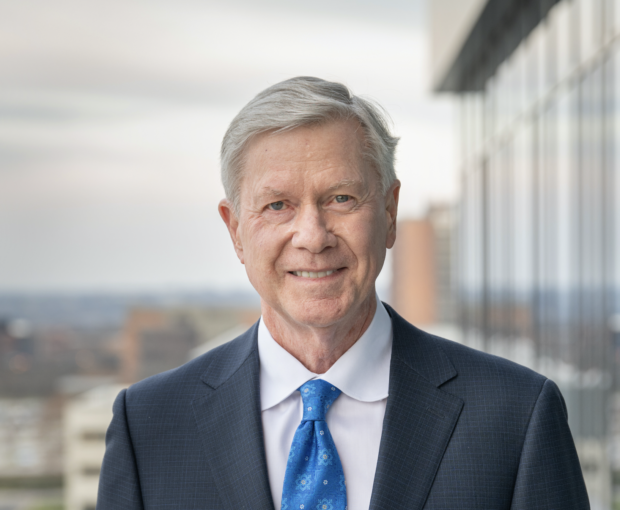HOME | ABOUT US | MEDIA KIT | CONTACT US | INQUIRE
HOME | ABOUT US | MEDIA KIT | CONTACT US | INQUIRE
Chief Financial Officer, The University of Kansas Health System

PUBLISHED JANUARY 2024
When you grow up in small-town Kansas, cushy retail jobs are few when compared to farm-related tasks and manual labor. And the latter, Doug Gaston wryly notes, offer a unique learning opportunity: “It teaches you that you don’t want to do this kind of work your whole life,” he says. He learned that lesson well before earning his undergraduate and master’s degrees in accounting from Kansas State University. And from there, he embarked on a career as a certified public accountant that took him to big private firms, his own boutique firm, a Midwest firm with an expanding footprint nationally, and then—ostensibly after his retirement—to the leadership ranks at The University of Kansas Health System, where he serves as Chief Financial Officer.
Gaston set out on his career trek armed with the work ethic common to kids in his hometown of Marysville, just south of the Nebraska border in north-central Kansas. There, he’d suited up for most any sport that was in-season—quarterbacking the Bulldogs’ football team, then playing guard on the basketball team and shortstop in baseball. In each case, he says, he learned something about the value of leadership and teamwork.
As far back as junior high, Gaston says, he had a general sense that he’d become a CPA, “even though I didn’t really know what was what” when it came to accounting, But a cousin a few years older was doing well in that capacity, and it seemed like a good way to distinguish himself from others, he remembers. Once he reached Manhattan, he never wavered: “That was my focus,” he says, and after securing his degrees, “I wanted to pass the CPA as fast as I could.”
His career took him to Coopers & Lybrand, a former Big Eight accounting firm now part of pricewaterhousecoopers, before he started his own firm that was eventually acquired by BKD (now FORVIS), where he stayed on through retirement. He signed on with the health system not by design but by chance, having been engaged in its primary fund-raising event, Treads and Threads. In doing so, he’d become acquainted with the system’s CEO, Bob Page. “He showed up at my retirement reception at BKD,” Gaston says, “so maybe he was already trying to recruit me.”
When Page did, indeed, raise the prospect of a second act, Gaston says he had no reservations, even though it was stepping from one sector where he’d had advisory functions into another where it’s all about implementing tasks. “It was not an industry I’d worked in, even though I had done work for a lot of physicians as clients, but no hospitals,” Gaston said. “I wasn’t beating the streets looking for a job, but it looked like a challenge.” His work has informed Page through decisions that have helped transform the hospital and health system, and this past year’s complex acquisition of Olathe Health System was a prime example. “I had been involved in my CPA life in lots of acquisitions, but it’s different when advising on one and really doing it yourself,” he says, “and this was health care, so it was a little different.” Bringing other Kansas hospitals into the fold, along with physician practices, has also been part of his gig.
Throughout his working life, Gaston has embraced values that were ingrained back on the playing fields of Marysville, always approaching work with a desire “to be a team player, outwork your opponent, and never quit.” In leadership roles, he says, he was frequently assessing talent for hiring, “and I always wanted people who had competed in something—it didn’t have to be sports, it could be band competition—but people who had competed, learned how to win, and learned how to lose, too, and take something from it.”
Asked what he thinks his strongest leadership quality might be, he settles on “learning to quickly assess issues, problems and opportunities. One of the skills I developed was the ability to look at a problem and figure out two or three of the main issues here. Sometimes, it’s easy to bog down in details, so I would look at whatever the issue might be and assume it wasn’t so complicated that it can’t be figured out. Usually, things come down to one or two key issues, and I think I’m reasonably good at figuring those out so we can focus on the right things. Most things in life aren’t that complicated if you think things through in that manner.”